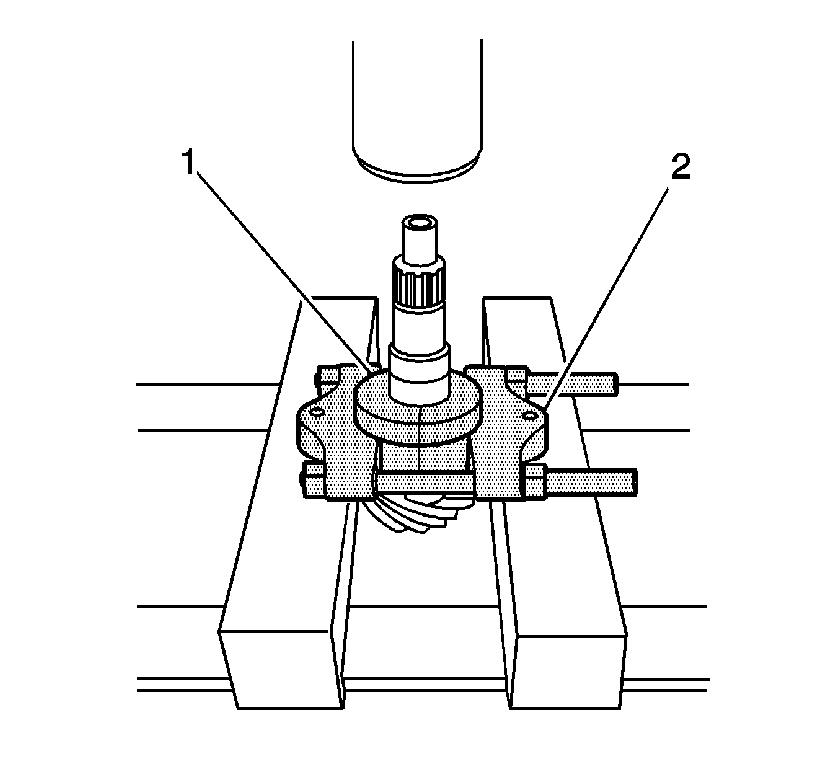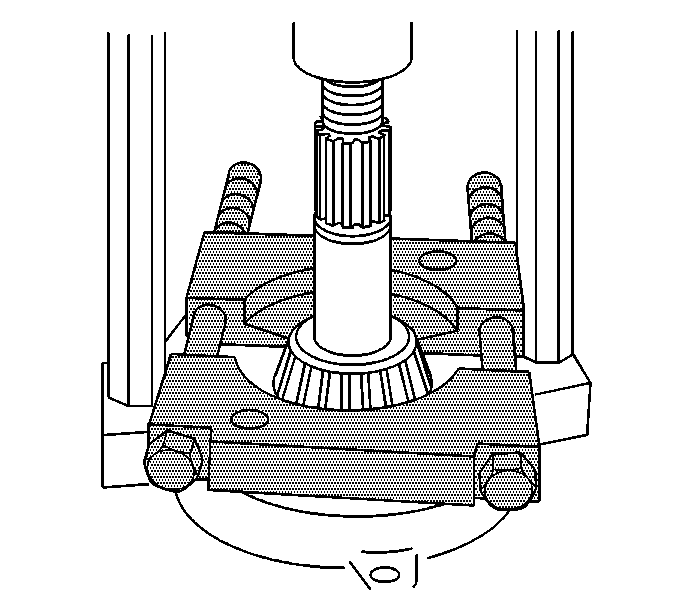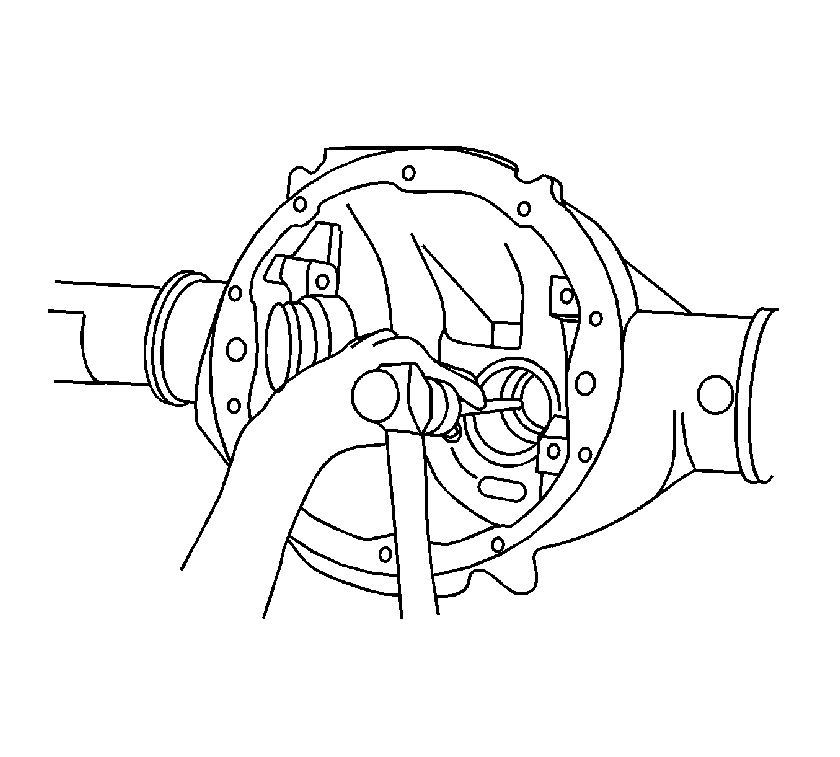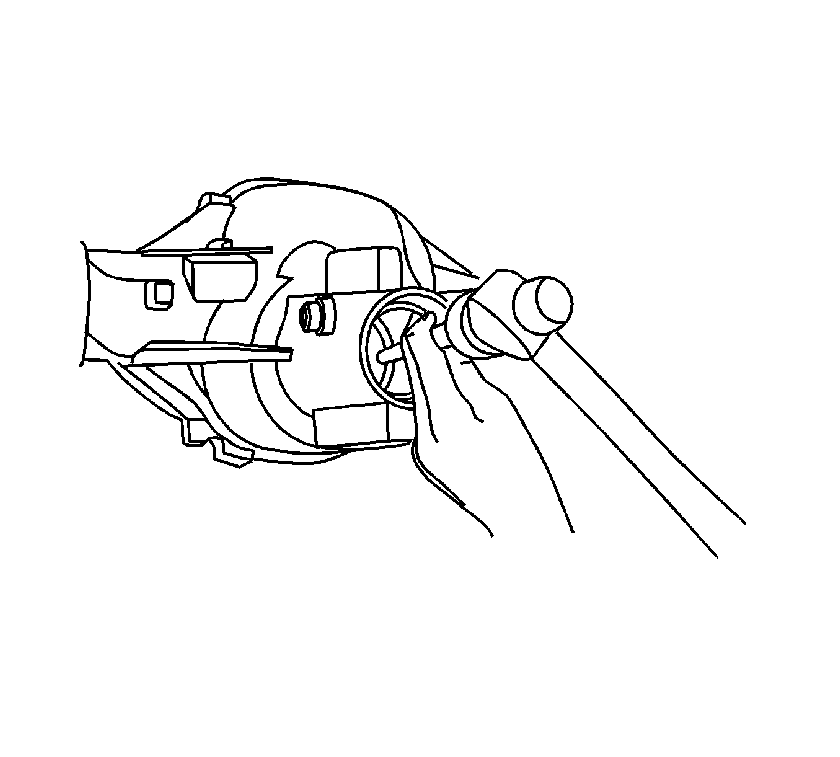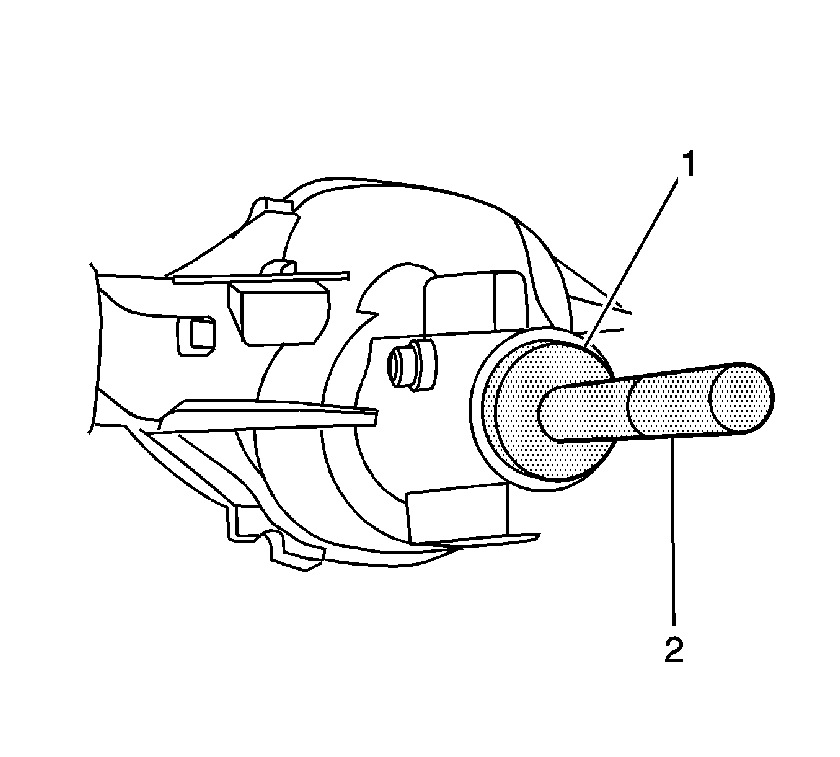
- Install the outer pinion bearing cup using the
J 8611-01 , 8.6 inch axle (2) and the
J 8092 (1).
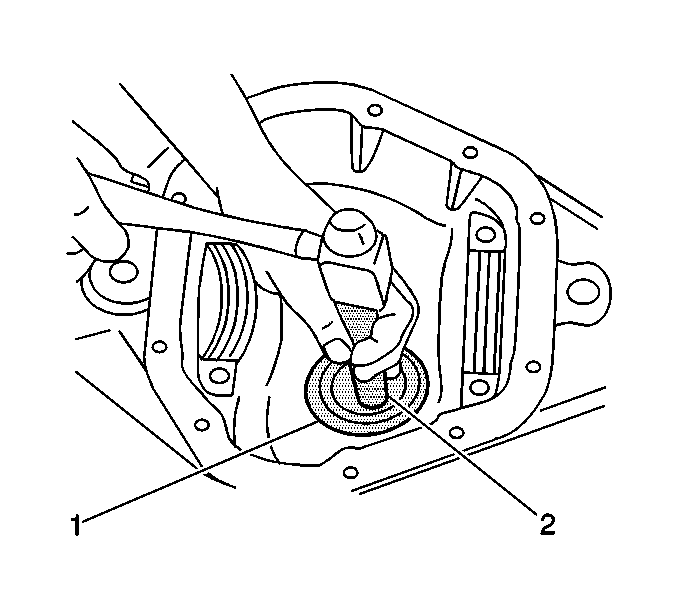
- Install the inner pinion bearing cup using the
J 45900 , 8.6 inch axle (2) and the
J 8092 (1).
- Determine the selective shim thickness for the pinion. Refer to
Pinion Depth Adjustment.
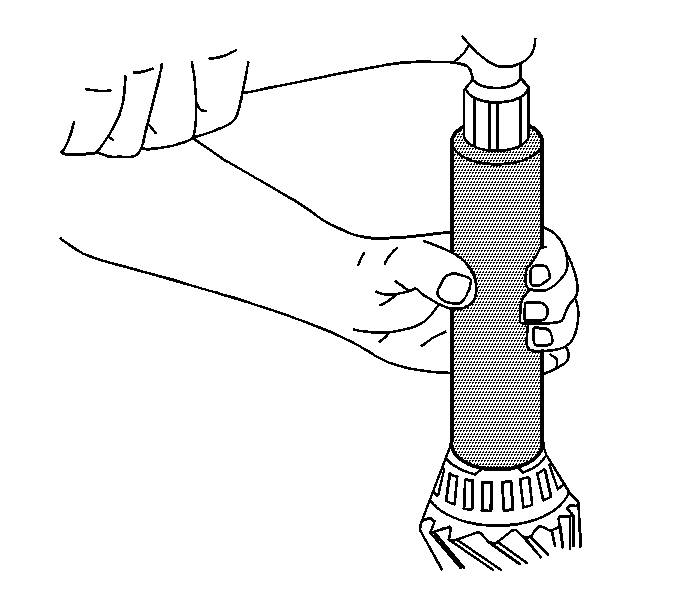
- Install the selective shim between the inner pinion bearing and the shoulder on the gear.
- Install the inner pinion bearing using the
J 24433 , 8.6 inch axle.
Press the bearing on until the cone seats on the pinion shim.
- Install a new collapsible spacer.
- Lubricate the pinion bearings with axle lubricant. Use the proper fluid. Refer to
Fluid and Lubricant Recommendations.
- Install the outer pinion bearing into the axle housing.
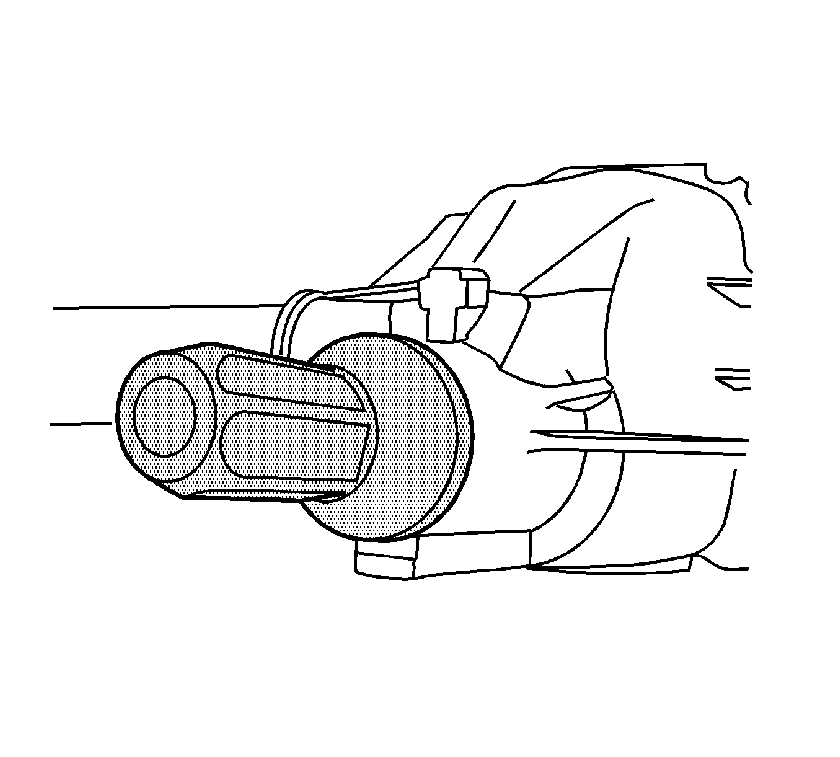
- Install a new pinion oil seal using the
J 22388 , 8.6 inch.
- Install the pinion into the axle housing.
- Apply sealant, GM P/N 12346004 (Canadian P/N 10953480), or equivalent to the splines of the pinion yoke.
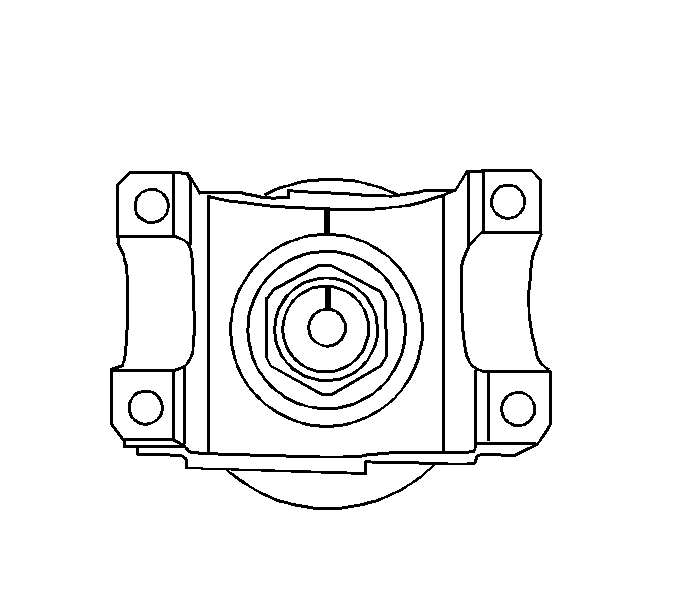
- Install the pinion yoke.
Align the marks made during removal.
- Seat the pinion yoke onto the pinion shaft by tapping it with a soft-faced hammer until a few pinion shaft threads show through the yoke.
- Install the washer and a new pinion nut.
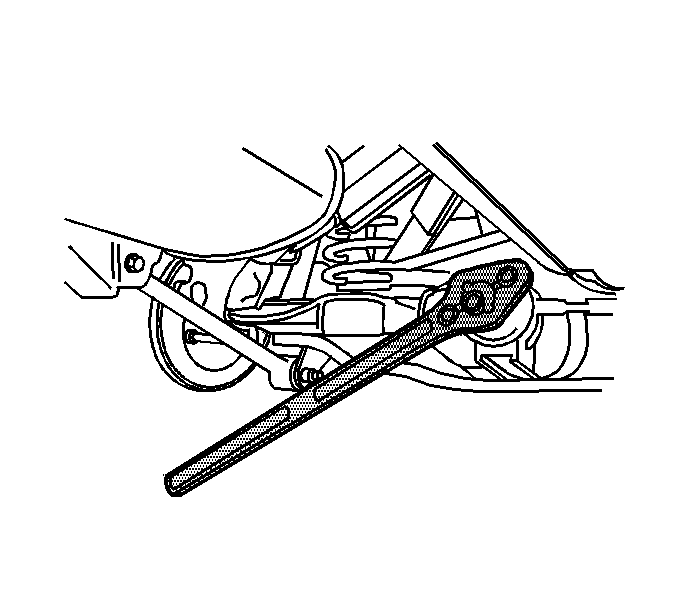
- Install the
J 8614-01 onto the pinion yoke as shown.
Caution: Refer to Fastener Caution in the Preface section.
Note: If the rotating torque is exceeded, the pinion will have to be removed and a new collapsible spacer installed.
- Tighten the pinion nut while holding the
J 8614-01 .
Tighten
Tighten the pinion nut until the pinion end play is just taken up. Rotate the pinion while tightening the nut to seat the bearings.
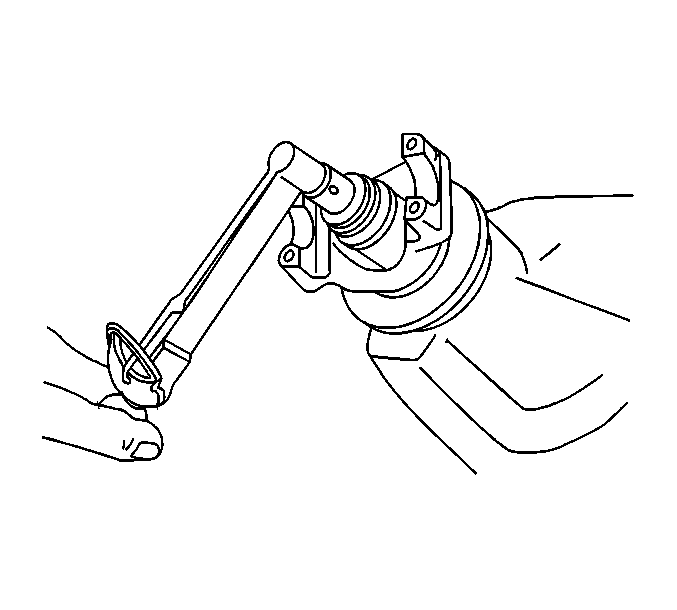
- Measure the rotating torque of the pinion using an inch-pound torque wrench.
Specification
The rotating torque of the pinion should be between 1.0-2.3 N·m (10-20 lb in) for used bearings, or 1.7-3.4 N·m (15-30 lb in) for new bearings.
- If the rotating torque measurement is below 1.0 N·m (10 lb in) for used bearings, or 1.7 N·m (15 lb in) for new bearings, continue to tighten the pinion nut.
Tighten
Tighten the pinion nut, in small increments, as needed, until the torque required in order to rotate the pinion is between 1.0-2.3 N·m (10-20 lb in) for used bearings, or 1.7-3.4 N·m
(15-30 lb in) for new bearings.
- Once the specified torque is obtained, rotate the pinion several times to ensure the bearings have seated.
Inspect the rotating torque and adjust if necessary.
- Install the differential assembly. Refer to
Differential Replacement.
- Fill the axle with lubricant. Use the proper fluid. Refer to
Rear Axle Lubricant Replacement.
- Lower the vehicle.
